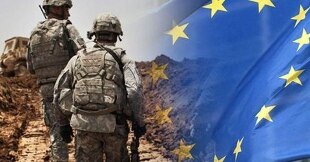Mattarella: EU at a turning point, common defense and security, bridging the gap between expectations and responses
Biden: US commitment to NATO mutual defense is unwavering
EU, Michel: "Time to unite and put in place a defense against pandemics"
EU summit on security and defense, Draghi: "A crucial objective is to relaunch the transatlantic agenda"
Share
06 October 2021The European Union is ready "to do more to promote and defend the values and interests of European citizens". To do this, in the coming months the 27 will be working on a new EU-NATO declaration, while the ambassadors and the Sherpas will start the preparatory work for the EU defense summit to be held in March under the French presidency in the coming weeks.
This is the message that the EU heads of state and government have leaked from the working dinner at Brdo Castle, in Slovenia, on the sidelines of the summit on the Western Balkans. Strengthen the European common defense and the strategic autonomy of the EU, therefore, to affirm the role of the European Union more strongly on the international stage. A chessboard, which after the crisis in Afghanistan is increasingly complex and requires greater European autonomy in terms of security.
"The EU High Representative for Foreign Policy, Josep Borrell, will present a first draft of the Strategic Compass in November 2021. We will return to it in December. We will support it in March at our regular European Defense Council. In the meantime, we will proceed. on the various existing tracks in the field of defense and security ". This was stated by the President of the European Council, Charles Michel, in his conclusions at the end of the debate at the informal EU Council, currently underway in Slovenia, on the international role of the European Union. The president of the European Council then added that the Commission: "It will work for a new political declaration with NATO before the NATO summit in June 2022".
Mario Draghi opened the discussion by reiterating Italy's firm membership of NATO, but adding that the withdrawal from Afghanistan requires the EU to reflect on the future of international relations and European defense. "We don't have time," the premier told partners, asking the Commission to produce a document on Europe's common perspectives on these issues.
But greater European military autonomy continues to be viewed with suspicion by NATO: "any attempt to weaken the transatlantic link by creating alternative structures, by passing on the idea that we can do it alone, will not only weaken NATO, but will divide Europe" Alliance Secretary General Jens Stoltenberg said. In a speech at Georgetown University, Stoltenberg referred to the so-called Akus alliance between Australia, the United Kingdom and the United States and said he "understands" France's disappointment. "But I don't believe in any effort to try to do something outside the framework of NATO, or compete with or duplicate NATO, because NATO remains the cornerstone, the foundation for European security and North American security."
On military autonomy, however, the EU could take a step forward this time: from the summit it emerges that the heads of state and government have shown "strong support for a multilateral approach", also in light of the Aukus alliance.

